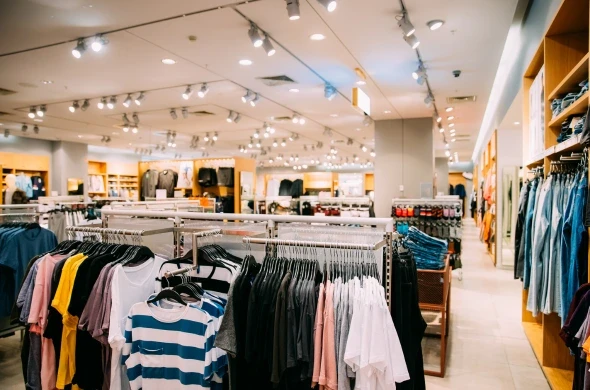As the globe marks two years since the onset of the COVID-19 pandemic, the luxury consumer goods business continues to change. A new generation of luxury players are now giving affluent consumers a variety of products and services based on cutting-edge technology such as AI or AR. This disruption is re-emphasizing some of the essential luxury features - exclusivity and exceptional personalized services.
What is meant by luxury brands?
A luxury brand is defined by its high quality, exclusivity, and exorbitant pricing. They do not wish to service big groups of people, nor do they want their items to be widely available, even at high prices. Scarcity is everything when it comes to luxury, their marketing technique, and that's what makes it so appealing in the first place. Luxury brands may be found in various industries, such as retail, hotels, and automobiles, among others.
Why innovation is important for luxury brands?
Because of the continually changing consumer marketplace and the expanding concept of 'luxury,' innovation with new goods, new services, new marketing methods, and new ways to interact with affluent clients leads to building a consumer sense of competence and contributing to wealth development and prosperity. These new innovations are paving the way for the luxury goods market to remain resilient and expand in 2022. Here are some of the latest trends:
NFTs and the Metaverse
Luxury businesses have collaborated with NFT developers or released their NFT lines in the metaverse. Buyers of digital clothes for example, receive an NFT that demonstrates ownership and validity. The owner could use NFT to display their fresh new designer scarf, or any other lavish item, in the digital realm or metaverse, where people interact via avatars.
Innovative retail design
Despite the shift towards the increase of online shopping, the largest portion of luxury purchases remains instore as consumers prefer to interact with the items and experience the luxury shopping journey within the store. In 2022, luxury stores and brands are investing in uplifting their instore shopping experience with more modern look and feel, and more interactive journey experience, and focus on personalized categorizations and wayfinding instore.
Products Passport
For product passports to achieve traction, firms must unite around shared standards and engage in large-scale experimental initiatives. A product passport allows a buyer to buy a used designer product, scan the code, chip, or label, and unlock its complete history within the product. This function gives premium items authenticated product data, ownership history, and resale worth.
Video Shopping
Live video shopping help consumers shop remotely while providing personalized service by luxury companies. The employment of live video to communicate with customers can create a competitive advantage, and with the correct assistance and training, it can propel sales performance to new heights.
Cyber Resilience
As the emphasis on a digital presence rises, so does the possibility of cyber-attacks. Consumer data and In-store technology are at greater risk, and many brands must protect their IP and their consumers' personal information.
Some steps in cyber-security are straightforward and include improving defenses against phishing scams and strengthening passwords. Some brands may also partner with IP legal counsel to establish their prioritized IP assets and secure them.
This enables and increases operational resilience. It also solves the brand's security issues while empowering employees to be innovative without raising the cyber risk.
Online Accessibility
Marketers are aware that the proliferation of mobile phones has made it easier for more individuals to access the internet. The internet will continue to be one of the most efficient ways for consumers to learn about premium goods.
Most, if not all, premium brands now have websites. Their website allows their high-profile target audience to learn more about them. If luxury firms take advantage of this, they may make it easier for their consumers to acquire one of their high-end collections if they incorporate online shopping capabilities.
Retention of Talent
The struggle for elite talent is exacerbated by the dynamic technology landscape, the ever-changing needs of the retail industry, and innovative, multi-channel marketing tactics. Implementing new technology necessitates hiring people with a wide range of new job abilities, but it also requires a shift in corporate mindset. Luxury companies with a recruiting advantage have quicker sales growth and higher profit margins.
Virtual Clienteling
As a result of the Covid-19 outbreak, numerous luxury shops invested in omnichannel capabilities to connect with consumers who could no longer purchase in-store. Virtual consultations are a popular trend, with technology allowing sales representatives to communicate with consumers in real-time.
Digital clienteling solutions also bring a unique element to the customer experience for luxury goods, allowing sales associates to offer one-on-one contact and a variety of personal shopping options.
Digital, Blockchain, and Metaverse
The term metaverse refers to virtual environments intended for people to interact in the same way they do in the real world. Digital luxury is explored in co-occurrence with the metaverse and the evolving use-cases of blockchain, which are allowing luxury brands to create a digital version of their products which avatars can interact with and wear.
Data and Personalization
Data-driven decisions, personalized suggestions, and virtual fit promise to boost sales and reduce returns by matching the right customer with the correct item. Personalization is also essential for resolving online fit issues. Customers desire a digital experience that is both inspirational and individualized. If luxury firms want to stand out, they must understand and leverage the information they are collecting from their customers.
What are the most prominent luxury brands technologies right now?
AI-based personalized high-end shopping recommendation
Companies using machine learning to enhance their customers shopping experience, examine data, maximize sales expected trends, and give inventory-related advice. Algorithms that trace clients’ behaviors and preferences to pair them with the correct items are part of the Artificial Intelligence technology.
Virtual reality (VR)
Sometimes VR and augmented reality (AR) are recognized interchangeably, however they are different. While VR comprises an entirely simulated environment, AR incorporates interactivity and simulation into a real-world setting. One of the most common applications in luxury fashion is a technology that enables shoppers to try on items virtually. However, it may even go as far as to construct a VR replica of an entire store.
3D Printing
3D printing is becoming increasingly important in the design and production of apparel and footwear. It allows manufacturers to prototype in real-time, instantaneously modifying and changing in a far more efficient and precise way. The 3D bespoke software allows virtual browsing, visually striking printing, and finely textured materials.
Technology Consulting Services | Retail Consulting Services
Ollen Group is one of the leading retail consulting firms in the Middle East and Africa offering retail design and technology consultancy services. Our retail management consultant services and luxury retail consultants are up to date with consumer shifts in the Middle East, and can offer turnkey solutions from strategy to execution, as well as design, development, and deployment.
Read our latest insights, ideas, and perspectives that explore the trends shaping the future of business and society. Our consultancy services go hand-in-hand with these insights, confirming our position as industry leaders. Get in touch to find out more about our consulting services and industry expertise.



